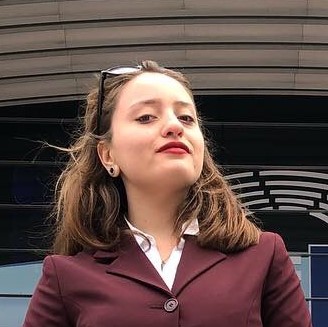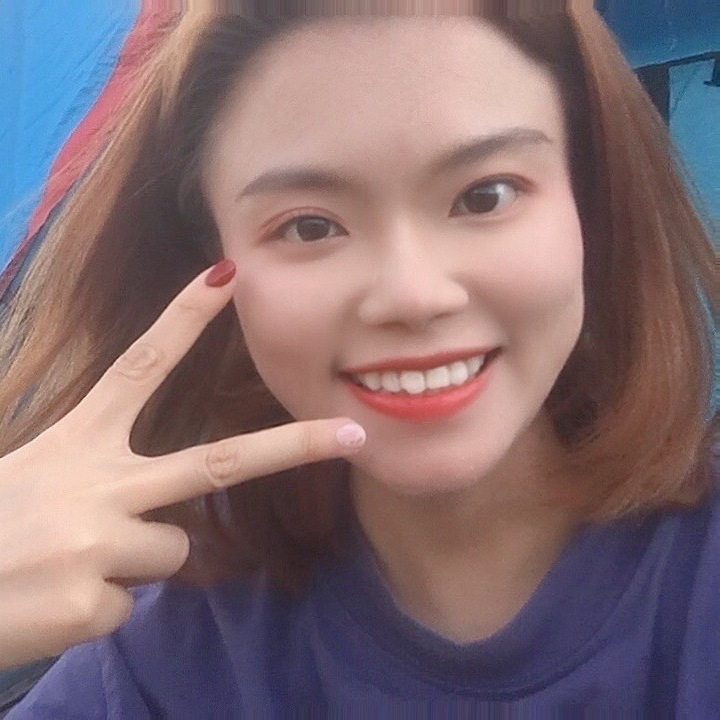‘Extremely Dynamic’: First-Year International Master’s Students Share Their Experiences Studying Modern Asia at HSE University

HSE University’s Master’s Programme in Socioeconomic and Political Development of Modern Asia prepares students for careers in academia, diplomacy, government, or NGOs. HSE News Service spoke with first-year students Francesca Cuozzo and Huang Shiyi about choosing the programme, the admissions process, and studying remotely from their respective home countries of Italy and China.

Francesca Cuozzo
First-year student, Master’s Programme in Socioeconomic and Political Development of Modern Asia
I’m from Napoli in the south of Italy, and this is my first year as a master’s student at HSE studying modern Asia. Right now, I’m in my hometown waiting for a Russian visa to come in Moscow, so I’m taking all of my classes online. My knowledge of Russian is basically close to 0! I can read, and I know some basic words. I’d really like to study it and I look forward to learning more when I’m in Moscow.
When deciding upon a master’s programme, I had various options: staying in Italy, Europe, or going to Asia. While researching universities, I came across HSE: a top ranked university in Moscow that has many connections with Asian universities.
For me, it was the perfect deal: Russia is neither Europe nor Asia; it’s the bridge that unites the two regions in its unique way. Moreover, I began to notice HSE as a top ranked university on various websites but unlike other top-ranked universities, its costs are not extremely high.
I made my final decision when I had my interview: the professor gave me the feeling that the university would always support me and push me to become the best version of myself
The admissions process was quite clear and easy. I had to translate a few documents into Russian but I didn’t have many issues with that. However, if I had any problems I could have contacted someone from HSE to get help.
My classes at HSE are totally different from what I was used to in Italy. They are extremely dynamic: students are encouraged to question and discuss the material with each other and with the professors
Most of my courses are structured as follows: one lecture and two seminars. During the lecture, the professor just teaches us new concepts and information. In the seminars, on the other hand, students have to give presentations, show what they have learned, and enhance the group discussion. It’s extremely interesting and student-friendly, and I feel like I learn something new and useful every day.
So far my favourite courses have been ‘Entrepreneurship and Business in Asia’ with Professor Shaposhnikov and ‘Contemporary International Relations in the Asia-Pacific Region: an Advanced Course’ with Professor Korolev. These are two very different courses but both extremely interesting. The first has given me valuable insight into practical life and business in Asia. Moreover, I was able to join a project organised by the professor where students had to make an actual business plan for a real Japanese company. That was thrilling and interesting, and it made me learn a lot about the world of business.
While classes with Prof. Korolev might appear more theoretical, his way of directing the conversation and choosing the class topics made me learn a lot about current issues in international relations. For example, during one of our last classes we had an incredibly wide-ranging but detailed discussion about China’s belt and road initiative. This project will change our lives in the next years, and it is crucial to understand it at its best.

Huang Shiyi
First-year student, Master's Programme in Socioeconomic and Political Development of Modern Asia
I’m from Liuzhou city, Guangxi Zhuang Autonomous region, China, and due to the pandemic, I have returned home to do my studies remotely. During my first semester, I had a total of four courses, of which two were online and two were in-person. This is my first time doing this kind of ‘online + offline’ mode, and I think this can not only effectively curb the pandemic, but also make learning more efficient.
I like HSE’s free, open, and inclusive campus atmosphere very much. Before applying for the Master's in Socioeconomic and Political Development of Modern Asia, I did a Russian preparatory course at HSE. The course is famous for its high quality, so I enrolled in it through a study agent company.
For me, the admissions process went very smoothly. As a Chinese, I think China and Asia are in a golden period with great potential for development. There is too much significance to study and explore about the rise of China and the future of Asia. That’s why I chose Master’s programme in Socioeconomic and Political Development of Modern Asia.
I had a wonderful, eventful first semester at HSE. I learned a lot of interesting and practical things in my lecture courses. In seminars, I actively participated in class discussions, exchanged ideas with classmates and teachers, and gained a new understanding of professional aspects of the field
For example, during the course The Key Problems in Asian Studies Research, I made presentations about ‘The changes of Chinese women after the Reform and Opening up’ and ‘Chinese Dialects’. I very much hope to share my perspective on China with my classmates at the seminars. It is also an opportunity to hear how professors and students view China from their point of view. This is a very meaningful thing.
My favorite course is ‘Entrepreneurship and Business in Asia’. In this course, we learn about the economic history, industrial features, business culture and more of various Asian countries. This is a rich and interesting course that expands my knowledge.
Professor Sergei Shaposhnikov is knowledgeable, humorous, patient with his students, and very professional.
HSE University welcomes applicants from all over the world and offers not only different levels of study, but also different formats in English and Russian, online and offline. International applicants can apply for Bachelor’s and Master’s degree programmes in a separate admissions process for foreign applicants and receive scholarships with full or partial tuition fee coverage.
When applying to a Bachelor’s programme, including five English-taught programmes in Moscow, it is possible to submit international certificates you have received in English and mathematics, such as IELTS, TOEFL, A-Level and other international exams and they will be recognized by HSE University, so taking entrance exams in relevant subjects will not be required.
Undergraduate applicants can test their chances of admission now by taking mock tests. Master’s applicants also have the opportunity to get a preliminary assessment of their portfolio and communicate with their programme of choice online.
There are also ZOOM consulations available for graduate and undergraduate applicants.
Alexander S. Korolev
Lecturer, School of International Affairs
Sergei Shaposhnikov
Associate Professor, Department of Strategic and International Management

